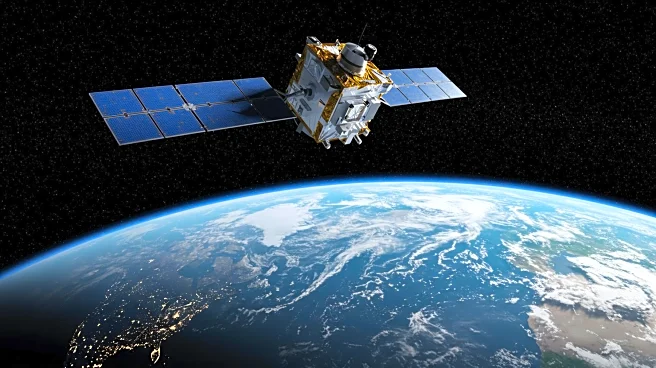What's Happening?
NASA is undergoing a significant shift in focus, moving away from Earth sciences as stated by Acting Administrator Sean Duffy. This change aligns with the Trump administration's broader efforts to reduce science spending. NASA's budget request for Earth sciences has been drastically reduced from $2.14 billion in FY2024 to $1.04 billion for FY2026. Duffy emphasized that NASA's mission is exploration rather than Earth sciences, which has historically been a core part of its objectives. This shift could impact revenue for companies involved in Earth observation and satellite manufacturing, as well as industries reliant on NASA's environmental data.
Why It's Important?
The reduction in funding for Earth sciences at NASA could have significant implications for various U.S. industries, including agriculture and fishing, which depend on NASA's environmental data for decision-making. Senator Chris Van Hollen has expressed concern, noting that these missions are vital for American competitiveness and the economy. The shift could also affect companies that have been beneficiaries of NASA's Earth sciences budget, such as Peraton, Lockheed Martin, and RTX. The potential loss of funding may lead to decreased innovation and competitiveness in sectors that rely on NASA's data.
What's Next?
Legislation backed by Senator Van Hollen aims to restore science funding, but unless Congress acts before the end of the fiscal year, the Trump administration may proceed with its budgetary priorities. NASA's Earth sciences division continues to support some missions, including the NISAR, SWOT, SMAP, PACE, and GRACE-Continuity satellites, which will lead to contracts for the commercial industry. The agency's commercial smallsat data acquisition program, with a $476 million ceiling, will continue until 2028, supporting 14 Earth observation companies.
Beyond the Headlines
The shift away from Earth sciences raises ethical and strategic questions about the role of NASA in addressing global environmental challenges. The agency's historical mandate includes expanding human knowledge of Earth and atmospheric phenomena, which is crucial for understanding climate change and other environmental issues. The decision to prioritize exploration over Earth sciences may reflect broader political and economic priorities, potentially affecting long-term scientific research and policy development.










